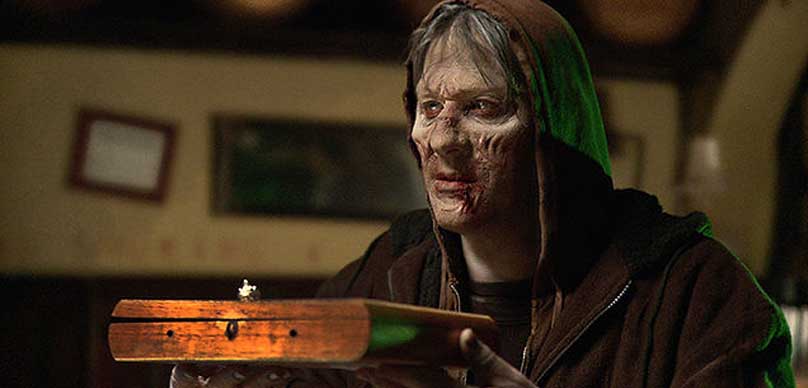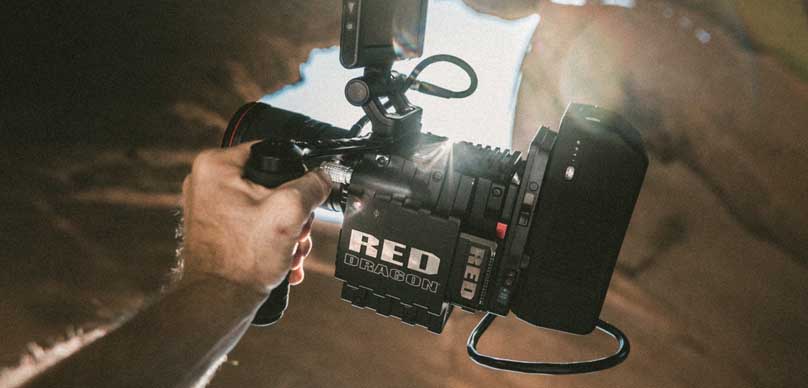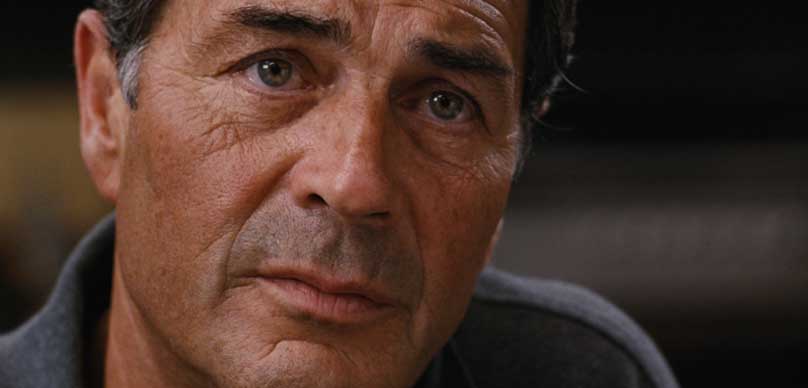I know that everyone reading this has had a moment in time where someone did not believe in them for one reason or another. It’s a part of life and a REAL BIG PART of the film industry. So many times in my career I was told that:
“You nuts! That’ll never work.”
or
“That’s never been done before.”
Well, I love hearing that. It has taken time for me to enjoy when people say “it can’t be done.” I truly use it as fuel. You must first believe in yourself before anyone will believe in you.
Now you also have to be smart about this. You can’t blindly believe in yourself without having a plan, educating yourself and understanding the playing field you’ll be walking on to.
In this episode, I go over exactly that, how to deal with non-believers and how to build a plan to make your goal come true. Please share this episode with anyone who needs to hear it.
Right-click here to download the MP3
Alex Ferrari 0:00
So guys, today we're gonna talk about what to do, when people don't believe in you. When they don't believe in your dream, your passion, you as a person, your abilities, this is something that everybody goes through at one point in their life or another, some more than others, I've had this happen to me, I can't even count how many times I have been denied the Gold Cup with because people didn't believe in my abilities, or there was some politics involved or, you know, blah, blah, blah, many different reasons and how you handle that is so important to your development as a filmmaker and as an artist, you know, I've been around the block a little bit. So I come from a point of view of 20 plus years now in the business. So a little bit a little bit more seasoned and a little bit. Hopefully, I've learned a few things along the way. So this is my perspective, believe me, if you would have been interviewing or talking to the 22 or 25 year old, Alex Ferrari, trust me, the conversation would be very, very, very different. But I'm gonna give you an example of a project that I was working on recently, actually. And they I was talking to somebody who, who knew me and who, you know, who was who I'd worked with in the past, and I was attempting to do something that they never heard of was out of their comfort zone. And they were so kind of insecure about it. And just were so unwilling to think about anything outside of their own comfort zone or their own box, that they just started to try to break it down, turn it to, you know, tear it down, tear down the idea they're in on the concept of what we were trying to do. And I found it fascinating because I sat there for the first time not upset, though I was a little upset but but that didn't overtake me as I would have would have happened in the past, as I'm sure all of you do is you when someone tells you, you can't do something, you get very angry. But this time I actually sat and watched and analyzed what he was doing, why he was doing it. And I realized that it was like, well, this is just not for him, I'm gonna just do my way and I understand, I have a plan of what I want to achieve. He doesn't see that plan. And that's okay. And not everybody will see your plan or your ideas or your your abilities to do what you're saying you're going to do. And that's part of life. There are a lot of small minded people in the world, especially in the film industry, people are very scared in the film industry of anything new, anything outside the box, it's very scary to them. Because this is a very big business. This is a lot about money, it's about being able to produce, you know, if you make a movie for three $400,000 you better make money back if you make a movie, and that's on a very small budget imagine, you know, these 100 million $200 million movies, they're deathly afraid of anything new, or things that would shake the boat a bit at that budget range because there's just too much risk involved. So you're going to run into a lot of small minded people in this business. But before I start talking about like you've got to believe in yourself and no matter what, just keep fighting for your dream. That's all true. But you have to understand that you cannot blindly believe in yourself. You have to have some sort of plan some sort of knowledge because belief in yourself without being informed without being educated without learning without listening from other people. Whether negative or not. You have to it you have to kind of take it all Then filter it through yourself and continue going down the path that you want to go down. But you have to understand you have to educate yourself, you have to have a very clear idea, a very clear plan of what you're trying to achieve. So as you're if you're trying to get a film off the ground, well, you better have a plan on how you're going to make money with that film, or what your plan is for that film, and then adjust your your budget or adjust what you're looking for accordingly, fortune might favor the bold, but don't be foolish, you have to really have a plan, you have to have a plan of what you're trying to achieve. So if you want to be an actor, and you want to make a living as an actor, well then you better have a plan on how to get to that point, don't just say I'm going to go take a couple of acting courses, and hope for the best go out on auditions and hope for the best you should be planning, you should be working on that craft, you should be figuring out how I'm going to make a living while I'm chasing this dream. All these things, don't just be foolish and go after a dream blindly. You have to have a plan. I mean, I mean, I came out here to Los Angeles with a dream. You know, I wanted to come out here and start building a career for myself after I left Florida. And you know, I came out here with a plan, a loose plan, nevertheless, but a plan and a very educated plan where, okay, well, when we get here, my wife will get a job. I'll start editing and I'll have I have all my DVDs that I bought from going out of business Hollywood video. If you guys want to hear the full story of this, you can always go to Episode Five, do I need to move to Los Angeles to make it into the film business, I tell the whole story of how I came out here and why I came out here. But the point is I had a plan, I had a plan of like, Okay, I have six months of reserves. As far as cash is concerned, I have a way of making money while I'm building up my career here. And it worked out wonderfully. But there was a plan, it wasn't just like I just showed up, like I did seven years prior to that to Los Angeles. And like, Okay, I'm gonna try to get a job. And maybe I'll do this or that. I mean, bottom line is you just have to have a plan. But again, when you're dealing with people that don't believe in you, I use nose as fuel to keep going. Like when I was talking about the story, I just told you, when that person said I couldn't do this, I have such a clear idea of what I want to achieve in my mind, and how to get there and certain steps on how to get there that I just said, You know what? Good for you. But it just got me upset. And it got me fueled up, to move forward and to keep going in the direction of what I'm trying to achieve. You know how crazy it is for me for a person to just open up a blog, or open up a podcast out of the blue who's never had any experience with either of those two things, and just show up. And within three months have a very popular podcast on iTunes. And within six months, you'll be have a very popular filmmaking blog, like indie film, hustle is by themselves. It's insane. It's a weird, crazy idea that I would have told people about which I did tell a few people, but everyone was like, Yeah, go ahead, knock yourself out. There was not a lot of risk involved other than my time. My point is, if I would have started listening to what people were telling me, or told me about the chances of me actually doing what I was attempting to do. Within three months, people would have said, You're nuts. You're absolutely not. But because I believed in myself, and I not only believed in myself, but I had educated myself. Nine months prior to opening up in the film, hustle, I studied and studied and studied how to do things online, studied, how to create the blog, how to create an iTunes, how to optimize podcast, how to optimize it for it. I mean, I did so much research, and so much work, that by the time I launched, I was ready to rock and roll. And that's something that I learned probably within the last four or five years, actually you just have to plan and process and learn as much as you can, and then launch what you're doing. And that's why I felt so confident in what I was about to do. By the way, it was not my goal to become one of the top filmmaking podcasts on iTunes, by any stretch of the imagination. I just wanted to help as many independent filmmakers as I could. But I had planned a lot of things to make that launch work. If not, it would have been nuts. And when I did tell a few people about indie film hustle, they were like, Okay, good luck to you. They had no idea how I was going to get there. But I had a very clear plan of attack. Now let's discuss how about if someone doesn't believe in you personally like you as an actor, you as a director? What do you do? All you can do at that point is you cannot change anybody's mind. All you can do is do the best work and take advantage of opportunities as they come. Like the quote that I said originally at the beginning of this show. If you want to be taken seriously as a filmmaker, then you have to do a serious amount of work. And it's so so true because being a real filmmaker, being a real artist takes time takes work takes time to learn your craft takes time to build a plan. on what you're trying to achieve whatever that mountain you're trying to climb is, you just don't jump out of the car at the bottom of Mount Everest, with a pat, you know, a peanut butter and jelly sandwich, a pickaxe, and some snowshoes, and go, I'm off, and I'm gonna go to the top, that's foolish, you have to plan, you have to take it seriously, you have to focus, you have to create so much work and hustle so hard, and hustle harder and longer than everybody else, that people cannot deny you what your goal is, that's what you have to do, you have to work harder than anybody else in the room, you have to hustle harder and longer than anybody else in the room. and ignore the people who don't believe in you listen, because they might be giving you in their own way, advice or knowledge that you can take filter through yourself, and take your take whatever you're trying to do to the next level. But the key is you have to hustle, you have to work. I do everything I do with indie film hustle by myself, currently. And I do so much work. And so and I try to do as much high quality content and work as I can for the for for the the tribe and for the website. And eventually people have to take notice, they just will know what Wait, what is this guy doing, you start creating so much work, you start putting out so much content. At a certain point someone's going to notice, if you start a web series, and you do an episode a week, at the end of the year, you have 52 episodes. That's something you can hang your hat on. That's something you can walk into a meeting with. And then you can go Oh, in the next over the next five years I have this a you do two episodes a week. But do you have 140 episodes? You know, is that something you can walk into meetings with that you can walk into financing with that, look, look what I've done, look what I've built. That's the thing you have to do. You have to go after your your dream your idea, but you have to have a plan, guys have a plan of attack, and then just execute work, learn. Educate yourself as much as humanly possible about every aspect of what you're trying to do. So if you're going to be an actor, you better know not only your acting craft, but how a director talks to you. How would you What's the rules on the set, learn the proper way of being on a set, what to do learn as much as you can about every aspect of the process. If you're a director, you better learn how to talk to an actor, understand their craft understand how to communicate with them. That's why I like the course that I recommend. So highly is Nina fogies course from USC, she actually breaks down the language of actors for directors, which is so amazing. I mean, it's something that I've struggled with as a director for for many, much of my career. And now over the years, I've been learning slowly, how to talk to actors, how to work with them, how to get those performances, how to guide them through their, through their journey through their process, but that's something that you need to learn. And I've know so many directors that walk into an edit suite and have no idea about how the process is. And you know what you might be able to do that when you're old. You know, we're not older, but when you're more experienced, and you're dealing with a lot more budget and bigger budgets, you might not need to know all the details. And that's fine, but you better have a clear understanding of the process. And as I'm fascinated sometimes at directors who walk into an edit suite have no understanding about anything technical whatsoever, not even the editing process, literally they have no understanding of it, let alone color grading have no understanding of it, how to get the movie finished, no understanding of it at a low budget. Like when you have a $50 million movie $20 million movie $5 million movie, you can hire people to do this for you. But at a low budget, my God, you better know everything. You have to know everything, again, a plan of attack for what you're trying to accomplish. And if you think that these big directors and big filmmakers out there, the Chris Nolan's of the world the Steven Spielberg's the Martin Scorsese, the Quentin Tarantino's if you think for a moment that these guys are ignorant of the entire process of filmmaking, you are mistaken all of those guys, all of the directors and filmmakers, at the top of their game, know a lot about what everybody else does on the set. They understand that just because you've made it to the top doesn't mean that you're going to stay at the top, you're going to keep growing and learning all the time. I don't want you to be those guys on Shark Tank. If you guys aren't familiar, there's a show called Shark Tank on ABC. I love it. It's about entrepreneurs that come in and pitch their ideas, to sharks to big basically big, big time investors to see if they'll invest in their company and take them to another take their company to the next level. And you see every week these some people come in with a plan and they've executed that plan or they're executing that plan and they understand their numbers, they understand what they're trying to do they understand their market, they've done their research. And those are the guys who get funded. Those are the guys who get deals from the sharks. Then you got these Yahoo's that come in, who are so blindly like, Oh, yeah, we've been on this project for seven years. And they're like, what are you doing seven years, you haven't made any money? No, no, but you know, this is gonna, it's just around the corner. And it's like, they had no plan. And they're so they're so blind to the process now that they can't even see what's going on in front of them. And that's where I don't want you guys to be as filmmakers. And as artists, you have to be open to all input, but funnel it through yourself. And one last thing I want to talk to you guys about as far as people not believing you is the problem of when people do believe in you. And I know that's counterintuitive to what I'm talking about. But you know, I've experienced this. And I know a lot of filmmakers who've experienced this, that they've been said no to so many times, that when someone finally says yes, they don't understand how to deal with it. They don't understand if they're even willing to accept it. I was talking to one of our former guests the other day, Paul Castro, who wrote August rush, and he was saying that specifically He's like, you know, you know, you have to ask sometimes. Are you willing to accept the opportunity when it comes to you? Are you going to stand in your own way? Do you deserve this opportunity? in your own mind? You have to ask yourself the question, and answered very clearly, do I deserve this opportunity? And you have to say yes, when that opportunity comes in, but a lot of people say no, either either consciously or subconsciously. They're like, No, I don't accept I'm not worth this, I'm not this or that. And now we're getting into a whole other conversation. But you have to be also willing to accept those opportunities, and accept the Yes, when it comes to understand when it's there, take it and run with it, because that door does not stay open long. And I've made that mistake multiple times in my career as well. So I hope I didn't ramble too much on this episode, guys, it was it was an episode I wanted to talk about because I wanted people to understand how I dealt with knows and people not believing in me. And believe me, it happens daily happens all the time. When you lose a job, when you don't get the opportunity, or whatever reasons. And a lot of times when they don't they say they don't believe in you. And it could be a lot of other things politics of the business money, girl, I you know, I want my girlfriend in the movie and all that kind of crap. So don't take it personally. Just move on, learn from it and move on. But have a plan of attack for what you want to achieve in life. Educate yourself, learn as much as you can. And every time someone says no to you use it as fuel to keep going. Don't do it blindly. Don't do it foolishly. Have a plan, have a plan of execution and start working. And if that plan of execution isn't working, be humble enough to pivot. Be humble enough to change your focus not your focus, but change your approach to the dream to the goal. And this could take years depending on how big your goal is, or what you're trying to do. Alright guys, so as always, please head over to filmmaking podcast comm to leave us an honest review of the show. It really helps us out a lot. The show notes for everything we talked about in this episode is in indie film, hustle, calm, forward slash zero 48. Next week is going to be well this week we have Episode 49. But next week will be Episode 50 of the indie film hustle podcast, and I hopefully will be making that big announcement then we have a few things that we're working on. I hope next week, we will be able to bring that announcement to you guys. And I'm really, really excited. I know I've been teasing it out for a few weeks now. But I'm really, really, really excited about what is coming. I'm just trying to get a few more things ironed out. And then we will announce this big, big, big, big news. So guys, keep that dream alive. Keep that hustle going. I'll talk to you soon.
Sign up to receive email updates
Enter your name and email address below and I'll send you periodic updates about the podcast.
YOUTUBE VIDEO
LINKS
- Rise of the Filmtrepreneur®: How to Turn Your Indie Film into a Moneymaking Business
- Rise of the Filmtrepreneur®: FREE AUDIOBOOK
- Indie Film Hustle TV (Streaming Real-World Film Education)
- Rev.com – Closed Caption Your Indie Film ($10 off Your First Order)
- Alex Ferrari’s Shooting for the Mob (Based on the Incredible True Filmmaking Story)
- VideoBlocks (Stock Footage – IFH Discount)
SPONSORS
- Bulletproof Script Coverage – Get Your Screenplay Read by Hollywood Professionals
- Audible – Get a Free Filmmaking or Screenwriting Audiobook
- Rev.com – $1.25 Closed Captions for Indie Filmmakers – Rev ($10 Off Your First Order)
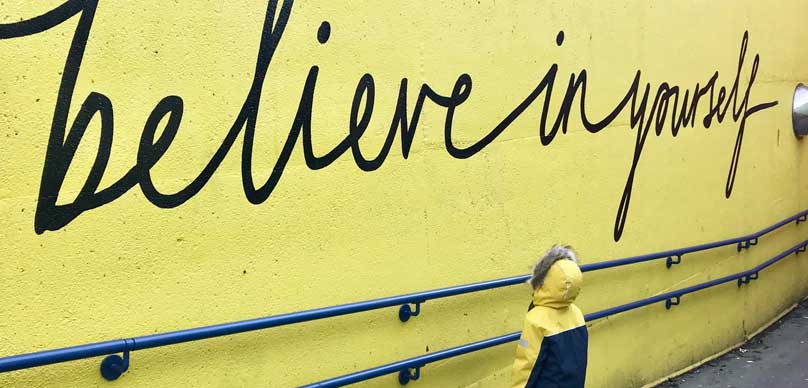
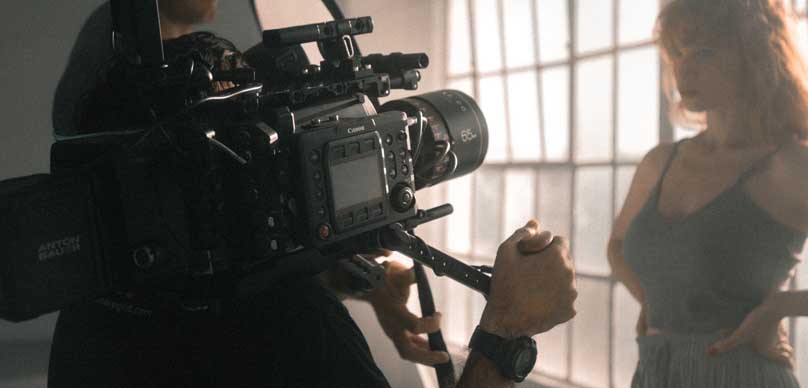
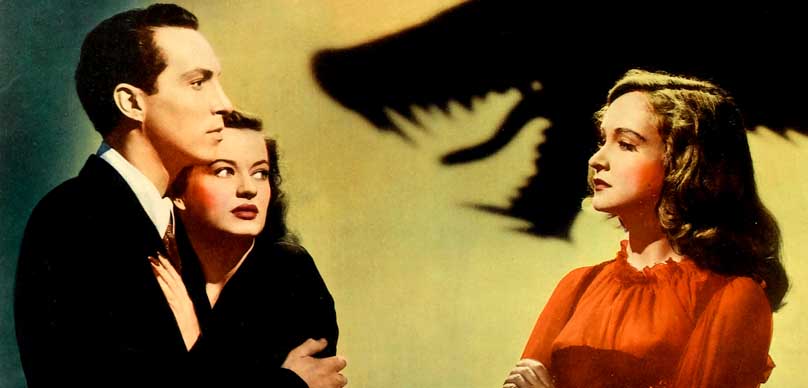
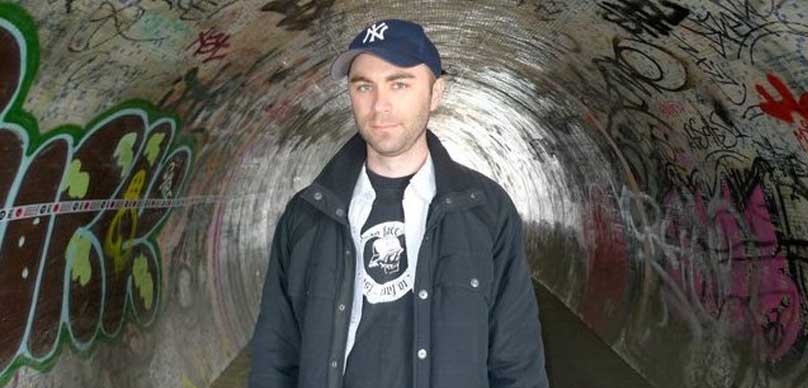
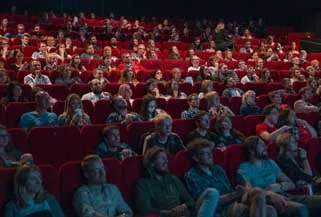
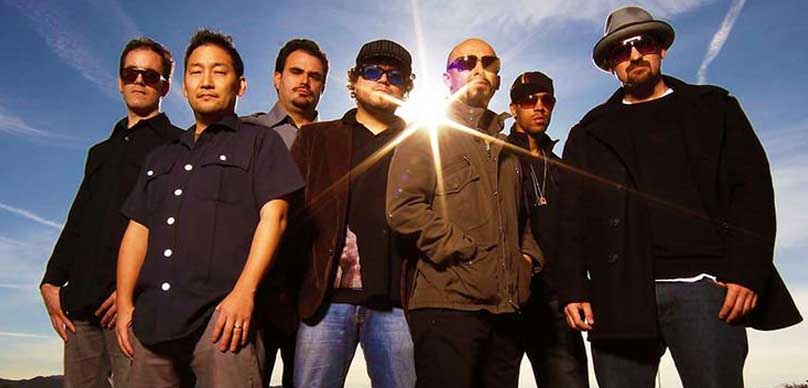
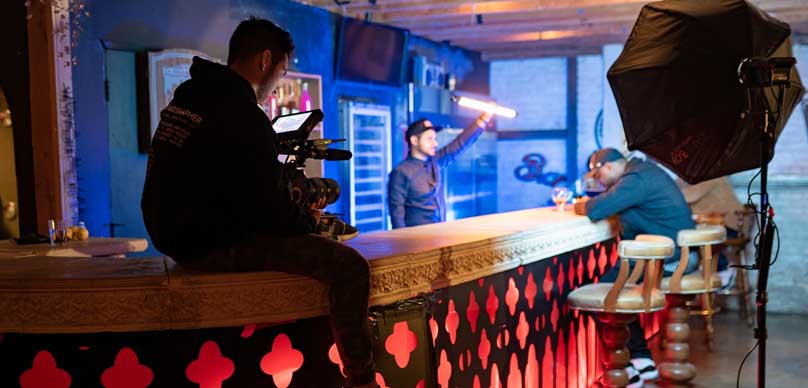
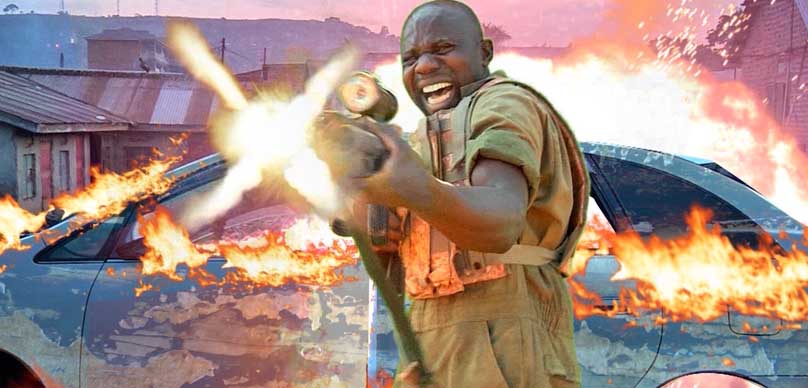



 On this podcast we get a true understanding of what the definition of “passion” is. Alan Hofmanis and Isaac Nabwana open up on how they make a Wakaliwood action film, how Isaac taught himself every aspect of the filmmaking process and what he would like to see Ramon Films Production and Wakaliwood become on the world stage.
On this podcast we get a true understanding of what the definition of “passion” is. Alan Hofmanis and Isaac Nabwana open up on how they make a Wakaliwood action film, how Isaac taught himself every aspect of the filmmaking process and what he would like to see Ramon Films Production and Wakaliwood become on the world stage.
